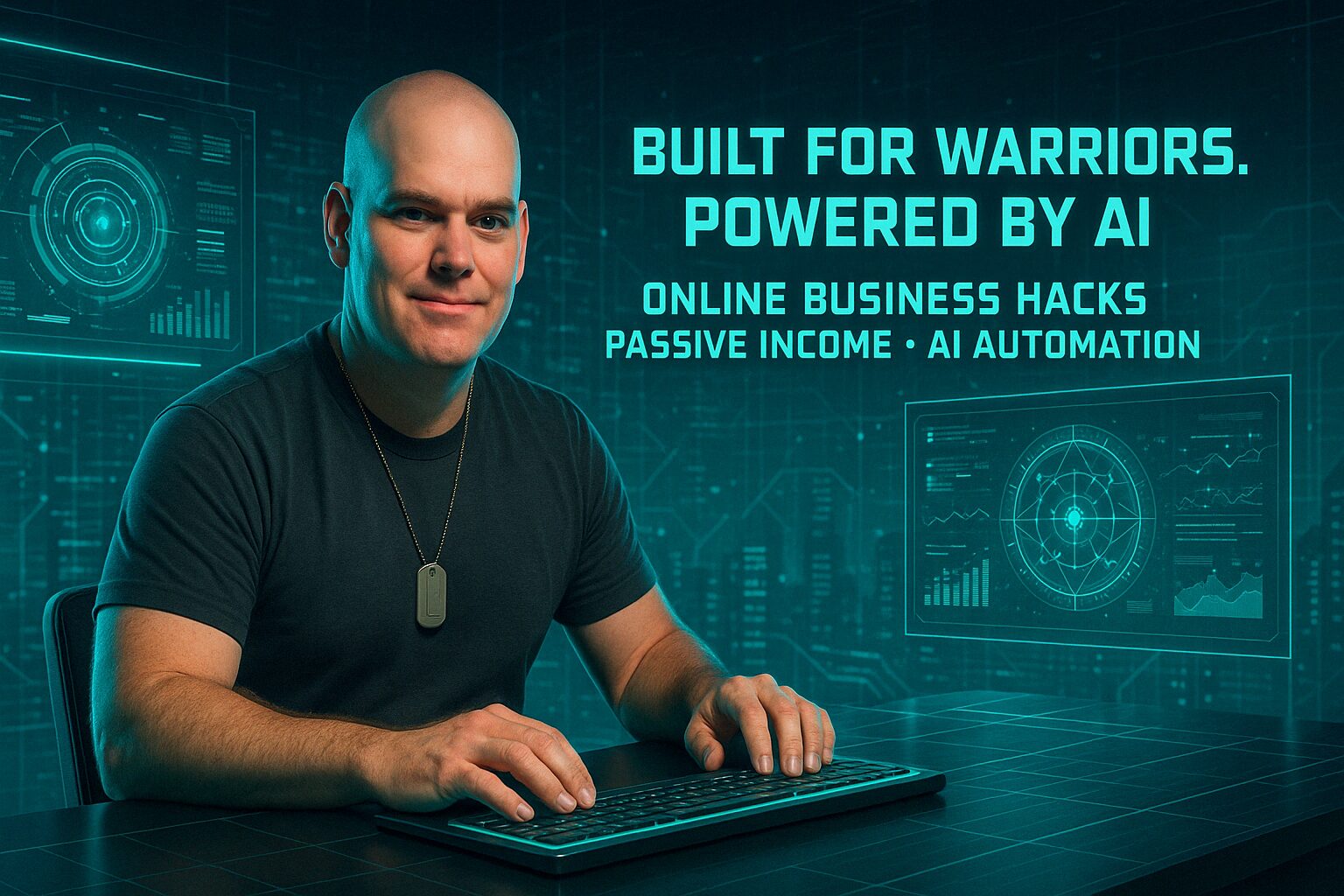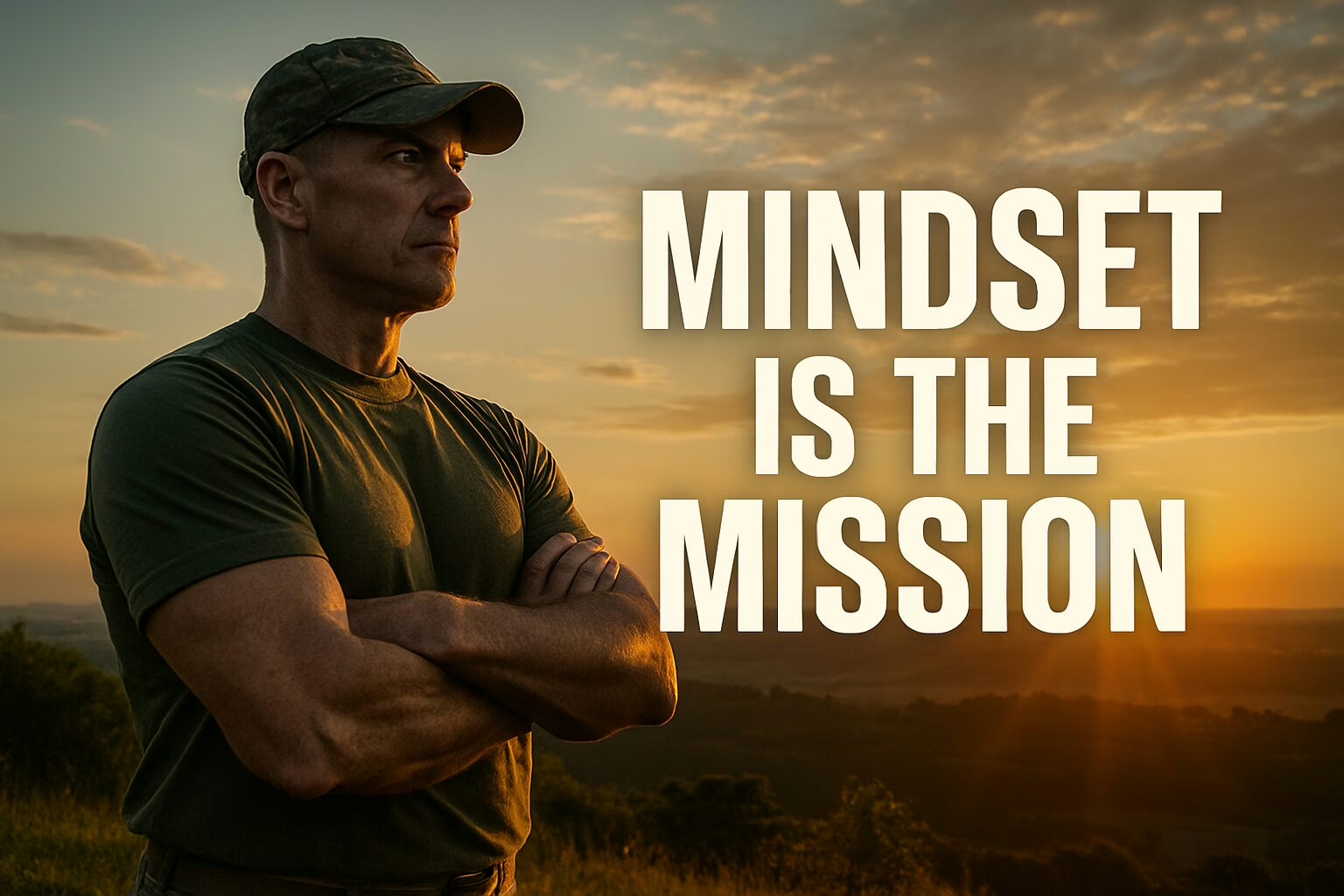Let me take you back to a freezing morning at basic training: we’re shivering, running drills, and I’m convinced the only way I’ll make it is by mentally rewriting failure as feedback. Turns out, that mental trick—alongside a few stubborn habits—became my secret weapon in business later on. Honestly, business isn’t a nine-to-five; it’s an obstacle course with surprise mud pits. Let’s talk about what really separates surviving from thriving as a veteran entrepreneur.
From Barracks to Boardroom: Why Veterans Are Wired for Resilience
When I think about what sets veterans apart in the world of entrepreneurship, one word comes to mind: resilience. Military life is a masterclass in handling chaos, and that experience becomes a wild card advantage when you step into business ownership. The same mindset that kept us focused during midnight missions now helps us navigate the unpredictable world of Veteran Entrepreneurship.
Military Skills: Turning Chaos Into Clarity
In the service, chaos wasn’t an exception—it was the rule. Whether it was a sudden change in orders or a supply chain breakdown, we learned to adapt and execute under pressure. That ability to stay calm and recalibrate is pure gold in business. Every entrepreneur faces curveballs, but veterans are trained to catch them and throw them back with precision.
Veterans possess a unique blend of leadership, discipline, and resilience. These aren’t just buzzwords—they’re the foundation of Military Skills that translate directly to entrepreneurship. When the stakes are high and the path is unclear, veterans don’t freeze. We assess, adjust, and move forward. That’s why so many veterans find success in business ownership, even when the odds seem stacked against them.
Veteran Advantages: Adaptability Under Fire
One of the biggest Veteran Advantages is the ability to adapt on the fly. As Jane Smith, a respected Veteran Business Coach, puts it:
“Veterans know what it means to adapt on the fly. That’s their business advantage.”
In my own journey, I’ve seen this play out time and time again. I remember a week-long business headache that had my team spinning their wheels. Instead of panicking, I drew on the same calm I used to resolve a logistics disaster overseas. I broke the problem down, delegated tasks, and kept everyone focused. By the end of the week, we had a solution—and a stronger team. That’s the military mindset in action.
Resilience: The Core of Veteran Entrepreneurship
Resilience isn’t just about bouncing back. It’s about recalibrating under stress and finding a way forward, no matter how tough things get. In the military, we learned that quitting wasn’t an option. If the plan failed, we adjusted the plan—not the mission. That mindset is a game-changer in entrepreneurship, where setbacks are part of the journey.
- Calm Under Pressure: Veterans are trained to keep their cool when everything is on the line. That calm adaptability is a huge asset in business negotiations, crisis management, and high-stakes decisions.
- Strategic Flexibility: Military training emphasizes flexible thinking. We’re used to shifting strategies on the fly, which is essential when the market shifts or a new competitor appears.
- Mission-Driven Focus: Veterans know how to keep their eyes on the mission, even when distractions pile up. That focus helps us cut through noise and drive results.
Support Systems: Boots to Business and VBOCs
Transitioning from the barracks to the boardroom isn’t a solo mission. Programs like Boots to Business and Veterans Business Outreach Centers (VBOCs) provide the training, mentorship, and resources needed to turn military skills into business success. These organizations understand the strengths veterans bring to the table and help translate them into real-world results.
Key Takeaways: Why Veterans Excel in Entrepreneurship
- Experience in High-Stress Environments: Veterans thrive where others might fold. Our training conditions us to make decisions under pressure and stay mission-focused.
- Resilience and Adaptability: We don’t just survive setbacks—we use them as fuel for growth. Every challenge is an opportunity to recalibrate and come back stronger.
- Leadership and Teamwork: Military service teaches us to lead by example and build strong teams. In business, that translates to better collaboration and higher morale.
Veteran Entrepreneurship isn’t just about starting a business—it’s about leveraging the mindset, skills, and support systems that set us apart. From handling chaos to recalibrating under stress, veterans are wired for resilience. That’s our wild card advantage in the boardroom.
Creative Mindset Shifts: Moving From Fear to Feedback
In the military, we learned early that “failure” was rarely the end of the story. Missions didn’t always go as planned, but what mattered most was how we regrouped, adapted, and pushed forward. That same lesson is at the heart of the entrepreneurial mindset: setbacks are inevitable, but your comeback is what defines you. For veteran entrepreneurs, creative mindset shifts are the wild card advantage that turns business challenges into opportunities for growth and innovation.
From Fear to Growth: The Power of a Growth Mindset
One of the most important mindset shifts I’ve made as a business owner is moving from fear to feedback. In the military, mistakes could be costly, but we never let fear paralyze us. Instead, we used every after-action review as a chance to learn and improve. In business, adopting a growth mindset means seeing every setback as a lesson, not a life sentence. When you treat failures as feedback, you unlock continuous learning and adaptation—two skills that are mission-critical for any entrepreneur.
- Fear says: “If I fail, I’m not cut out for this.”
- Growth mindset says: “If I fail, I learn and get better.”
Veterans excel here because we’ve been trained to debrief, analyze, and iterate. We know that the only real failure is refusing to adapt. That’s why so many veteran-owned businesses thrive, even in tough markets.
From Perfect to Progress: Progress Builds Momentum
Another key mindset shift is letting go of perfection. In the field, waiting for the perfect plan could mean missing the window of opportunity. The same is true in business. Early in my entrepreneurial journey, I obsessed over flawless launches—every detail, every contingency. But my biggest breakthrough came when I stopped chasing perfection and just shipped the idea. Was it perfect? Not even close. But it was real, and it moved me forward.
- Perfectionism stalls progress. Every day you wait for perfect is a day you’re not learning from real-world feedback.
- Progress compounds. Each step, even if it’s messy, builds momentum and confidence.
This is where the entrepreneurial mindset overlaps with military training: action beats hesitation. Trust your hard-earned instincts and know that progress, not perfection, is what drives success.
From Quitting to Adjusting: Adapt the Plan, Not the Mission
In both combat and commerce, quitting isn’t an option. But adjusting? That’s a superpower. When a plan failed in the field, we didn’t throw in the towel—we regrouped, adapted, and executed a new approach. Business challenges demand the same flexibility. If your first product flops or your marketing falls flat, it’s not a sign to quit. It’s a signal to adjust your tactics, not your mission.
- Review what went wrong.
- Gather honest feedback.
- Pivot with purpose.
Veterans are uniquely equipped for this because our training taught us to improvise and overcome. That’s the heart of a resilient, growth-focused business mindset.
Turning Failures Into Feedback: The Veteran Advantage
Every successful veteran entrepreneur I know has mastered the art of turning failures into feedback. Instead of seeing mistakes as proof of weakness, we use them as fuel for progress. This isn’t just positive thinking—it’s a practical, battle-tested approach to business problem-solving. As Alex Torres, Marine-turned-CEO, puts it:
“Mindset is the bridge between military training and business triumph.”
When you reframe setbacks as stepping stones, you unlock creative solutions and build the mental toughness needed to thrive. That’s the wild card advantage veterans bring to the table—a mindset forged in adversity, ready to turn any challenge into a new opportunity.
Unexpected Tactics: Personal Branding, Wild Solutions, and the Power of DMing ‘MINDSET’
When I first transitioned from the military to entrepreneurship, I thought business success was all about the right business strategies, funding options, and a killer product. But here’s the truth: none of that matters if you don’t own your story and use your mindset as a weapon. That’s where the wild card advantage kicks in for veteran business owners like us.
Let’s start with personal branding. I used to roll my eyes at the idea—thinking it was just LinkedIn fluff or something for influencers. But I quickly learned that personal branding is the opposite of fluff. For veteran entrepreneurs, it’s the bridge between our military credibility and the civilian business world. It’s how we prove we’re not just another face in the crowd. When you leverage your service, your discipline, and your unique story, you open doors that would otherwise stay locked. As Sonya Patel, Army Vet & Branding Strategist, puts it:
‘Your military story isn’t baggage—it’s your badge. Wear it.’
That badge tells potential partners, clients, and investors that you’ve been tested in ways most people can’t imagine. It’s not about bragging—it’s about establishing trust and credibility. When I started sharing my journey, I noticed more people wanted to work with me, not less. Even funding options like the Veteran Advantage Loan Program, or certifications like VOSB (Veteran-Owned Small Business) and SDVOSB (Service-Disabled Veteran-Owned Small Business), became easier to access because I wasn’t hiding my background—I was leading with it. These programs aren’t just paperwork; they’re business advantages that can set you apart in a crowded market.
But here’s where things get wild. Sometimes, the best business strategies aren’t found in a boardroom—they’re discovered on a midday hill climb or in a random DM. I’ve had some of my biggest breakthroughs when I stepped away from my desk and did something unconventional. One time, I was stuck on a funding decision. Instead of stewing over spreadsheets, I laced up my boots and hit the trail. Halfway up, the answer hit me: I needed to approach a fellow veteran for advice, someone I’d never met but admired online. I sent a direct message with one word—“MINDSET.” That single DM sparked a conversation that led to a partnership and, eventually, the funding I needed.
This is the power of being open to wild solutions. Veteran entrepreneurs are trained to adapt and improvise. In business, that means being willing to try what others might call “crazy”—whether it’s cold-messaging a stranger, pitching your story to a local news outlet, or taking a walk when everyone else is glued to their screens. These creative habits aren’t distractions; they’re often the spark for your next big move.
The real secret? Combining the discipline and resilience you learned in the military with the freedom to experiment in business. Personal branding isn’t a chore—it’s a tool. Wild solutions aren’t reckless—they’re resourceful. And sometimes, the most powerful business strategies start with a simple message: DM me “MINDSET.”
If you’re a veteran entrepreneur, remember: your story is your greatest asset. Don’t downplay it. Use it to unlock funding options, build trust, and set yourself apart in the world of veteran business. And don’t be afraid to shake things up—sometimes, the path to business success is a little wild, and that’s exactly where we thrive.
Ready for your own mindset breakthrough? DM me “MINDSET” and I’ll send you my off-the-wall Mindset Mission Plan—no fluff, just real strategies for veteran entrepreneurs who want to win. Because in business, as in the military, mindset isn’t just part of the mission—it is the mission.
TL;DR: Veteran entrepreneurs thrive by turning military grit into growth mindsets, reframing failure, and embracing uniquely personal strategies. The real mission? Leveling up how you think, every single day.

